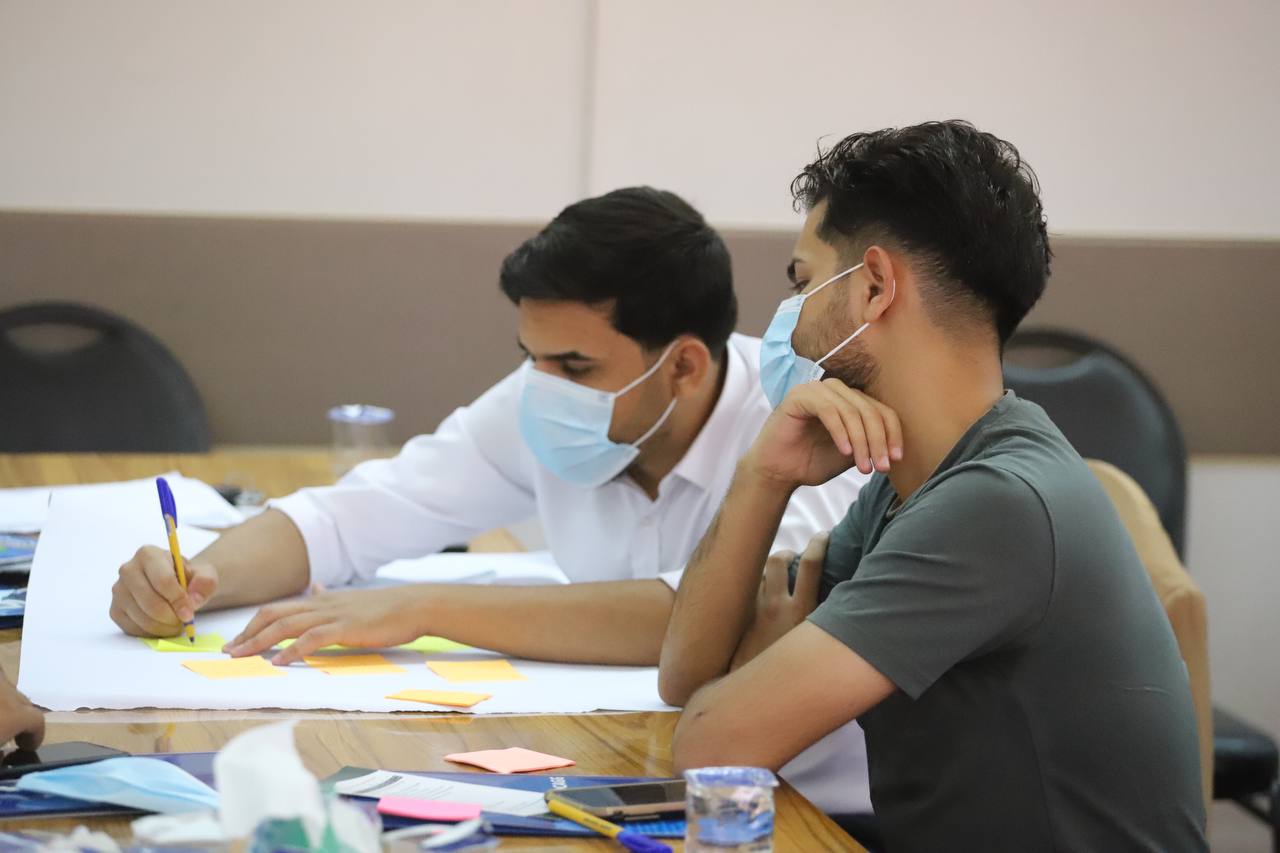
With Iraq’s next parliamentary elections scheduled for October 10, this five-part series highlights the critical voter education and mobilization work that IRI’s partners throughout the country are undertaking. Against a flood of misinformation about Iraq’s electoral system and how ballots are cast and counted, Iraqi citizens distrust many political institutions that have promised to deliver a better future. Through our programs, IRI works with committed civic organizers and democracy-focused civil society organizations that seek to encourage voter turnout and educate voters about their rights, responsibilities, and the democratic framework under which they live. Here is the second of five columns highlighting citizen empowerment ahead of the October 2021 elections.
Atheer – A Transformation from Disillusioned Activist to Enthusiastic Mobilizer
Atheer, a 25-year-old university student from Najaf, was upset about the political process in Iraq. This frustration drove him to become an active participant in the October 2019 Tishreen Revolution demonstrations, which saw a resurgence in political activism and had a core demand for early parliamentary elections. Through the electoral awareness program that the Democratic Center for Awareness and Good Governance (DCAGG) held in Najaf to train 30 young people, Atheer received information about the processes for voting, including the use of the biometric voter ID and electronic counting machines, as well as engaged in discussions about the role of elections and how individual voices can contribute to change. It was apparent that all the participants were against the voting process before taking part in the training, as Atheer and his colleagues viewed the elections as a way for corrupt people to control the government. At the outset of the training, all 30 participants called for a boycott of the upcoming elections because of their distrust for the Independent High Electoral Commission (IHEC).
Atheer was the most excited to discuss his ideas about the need to boycott with the trainers, but his views stood in direct opposition to their message about the importance of participation. Although the trainers felt a boycott would not result in the change he wanted to see in Iraq, Atheer was nonetheless adamant that boycotting was an effective way to make his voice heard and that the technology used in the election could lead to fraudulent results. Interested in correcting his misconceptions and challenging his belief that individuals cannot change the system, DCAGG and its trainers responded by engaging him in deep discussions. They spent time with him, and the other 29 attendees, discussing the possibility of creating change through electoral participation as well as attending public demonstrations.
Following the training, Atheer was inspired and wanted to see firsthand how the IHEC worked, and visited the Najaf IHEC Governorate Electoral Office (GEO) to see its procedures and break the ice between a group of young protesters active in the demonstrations and the IHEC. Fifteen young men and women visited the Najaf GEO last May and were welcomed by the administrative and technical staff of the GEO. While there, GEO staff explained how the electoral law was different than in previous cycles and showed them how the biometric ID card reader and electronic ballot counting machines worked. Both parties discussed their points of view with the young demonstrators wanting answers about electoral integrity and fraud prevention.
With the visit to the GEO adding to the ideas of participation and electoral security, Atheer began to tangibly change his mind in favor of joining into the electoral process. He started to hold education and dialogue sessions in the demonstrators’ camps to convince them about the importance of participating in the elections and supporting Najaf GEO. Moreover, when he learned from the Najaf GEO that there were 150,000 biometric voter ID cards that people had not yet picked up, Atheer and his friends contributed to the GEO’s distribution efforts, encouraging and assisting people to visit the GEO office to receive their voter ID cards. Ultimately, they were able to help the GEO distribute more than 10,000 biometric cards in the Al-Askari and Missan districts in Najaf city.
While there are many more cards remaining and many protestors not yet convinced, Atheer and his friends contributed, through their activities, to changing the opinions of Najaf’s youth by educating them about their rights and responsibilities and ensuring that another 10,000 of their neighbors had the IDs needed to participate in the upcoming elections.
To read part one of the series click here.
Top